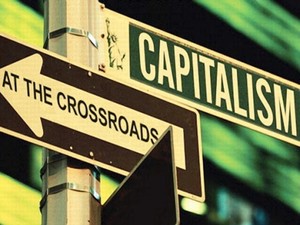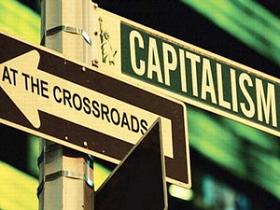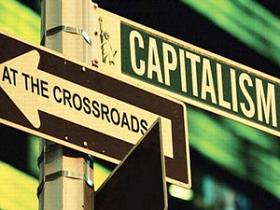Sri Lanka blasts Cameron on human rights records
Sri Lanka has point blank asked Britain to mind in its business and not to try lecturing Colombo on human fights. UK premier David Cameron has been warned by the Sri Lankan government not to quiz them over alleged war crimes in 2009. The prime minister, however, has rejected calls from many countries to boycott a Commonwealth summit in the country, saying he would use his visit to raise its human rights record.
Cameron is also holding trade talks with his Indian counterpart Manmohan Singh, who is among those avoiding the summit. Manmohan Singh is joined by the prime ministers of Canada and Mauritius, who are staying away in protest over allegations that the regime of Sri Lankan president Mahinda Rajapaska carried out war crimes at the end of a civil war with Tamil separatists four years ago.
Tamil representatives and the Labor opposition also urged Cameron to join the boycott, but the UK PM argues he can achieve more by using his attendance to "shine a spotlight" on "some of the human rights issues".
But the Sri Lankans reacted angrily to that suggestion. Sri Lanka is not pleased with criticism of its crimes against humanity and said Cameron has no right to bring it up as he had not been invited on that basis.
Colombo questions the authority of London to dictate its rule s on Sri Lanka. The PM's determination to put human rights in the spotlight will be tested. Asked about the comments, Cameron maintained he was right to raise questions, adding: "That's exactly what I'll be doing." Minister of mass media and communications in SL Keheliya Rambukwella told the BBC, "We are a sovereign nation. You think someone can just make a demand from Sri Lanka? "We are not a colony. We are now an independent state."
The UN estimates that 40,000 civilians were killed in the last five months of the 26-year conflict but the Sri Lankan authorities deny responsibility. British media in Sri Lanka who have been asking questions about the government's human rights record have struggled to get answers. Many critical Sri Lankan journalists have been murdered. A Channel 4 documentary team was forced to give up on reaching the north of the south Asian state after being stopped by pro-government demonstrators. Tamils have been barred from entering Colombo.
The Sri Lankan state often stresses the co-operation between the island's four major religions. In the cities, churches, mosques and Buddhist and Hindu temples sit side by side, with many devotees never facing problems. And it is certainly true that in Colombo you do find communities mixing quite happily - but critics say this should not mask deeper divisions and concerns.
Grave war crimes accusations are also levelled at the LTTE, but as most of them did not survive, and as the Sri Lankan government has continued to justify its conduct, the spotlight is focused on the current leaders. In recent days - after the Tamil opposition's election victory in the North - the Sri Lankan Army has gone on a demolition spree, flattening the houses of people displaced long ago to consolidate these zones - which it says it needs "for security reasons". Udaya Gammanpila Provincial Tamil minister said: If they just come to Colombo and go around they will find the co-existence of Sinhalese, Tamils and Muslims”.
When journalists try to film or photograph it, their memory cards are seized and deleted and they are chased away. The demolitions continue. Then there are the unanswered question about possible war crimes and allegations of the indiscriminate bombardment of Tamil civilians as the war ended; of the summary killing of the captive LTTE members who surrendered.
A Tamil refugee camp outside Jaffna is cruel and pathetic. . The children played in the dirt. The place felt temporary, prefabricated. Yet Sujitharan has been here since 1990 when his family fled their home because of fighting between the government and the Tamil Tigers (LTTE). The military keeps hold of their land, like other large tracts deemed high security zones. "We're living as second-class citizens with no facilities, no bathrooms. It's a very sad life. Our children need to live on their own land," he says. Sujitharan had decided to vote for President Rajapaksa in the hope of getting his land back.
Many Sri Lankans are proud to be welcoming the Commonwealth leaders and see the summit as a tribute to a president many revere for his victory after 26 years of conflict with separatist Tamil Tigers. Colombo's violence-scarred past is becoming a mere memory. But for the entire burnished infrastructure, there is disquiet under the surface. The streets of Colombo are glistening for the Commonwealth Heads of Government Meeting (Chogm). But controversy still rages over war crimes allegations, press freedom, judicial independence and the safety of minorities. New fountains are flowing, there are new pavements and new street lamps have been constructed. A motorway has just opened linking the airport to Colombo for the first time.
In 1948 the island nation Sri Lanka gains independence from Britain as Ceylon, in 1972 , the government changes its name to Sri Lanka and gives Buddhism primary place as country's religion, antagonizing largely Hindu Tamil minority. By 1983, as ethnic tensions grow, the Liberation Tigers of Tamil Eelam (LTTE) launches a violent uprising, seeking autonomy for the Tamil-dominated north and east.
2005 became the turning point in Sri Lankan civil war dominated politics as, after years of war, and failed peace talks, Mahinda Rajapaksa is elected president. In May 2009 Tamil Tigers defeated after army over-runs last patch of rebel-held territory in the north-east. The crucial point of change in course was when LTTE leader Velupillai Prabhakaran was killed by military which then proceeded further to genocide spree to cleanse population of Tamils.
UN said in 2011 that both sides committed atrocities against civilians and calls for an international investigation into possible war crimes. Sri Lanka reacted saying the UN report is biased. Another UN report in Nov 2012 said over 70,000 civilians were "unaccounted for" at the end of the war.
For decades Tamils were denied full citizenship rights.
The summit's attendance list has narrowed, with Canada's Prime Minister Stephen Harper boycotting the event over rights abuses. Indian Prime Minister Manmohan Singh has also said he will not attend. Meanwhile, a UK capitalist leader Cameron, who arrived in Delhi on 13th November en route to the summit, is expected to unveil trade deals with India. He is also seeking to promote the UK as a destination for Indian students and companies.
Comments
There are 0 comments on this post















